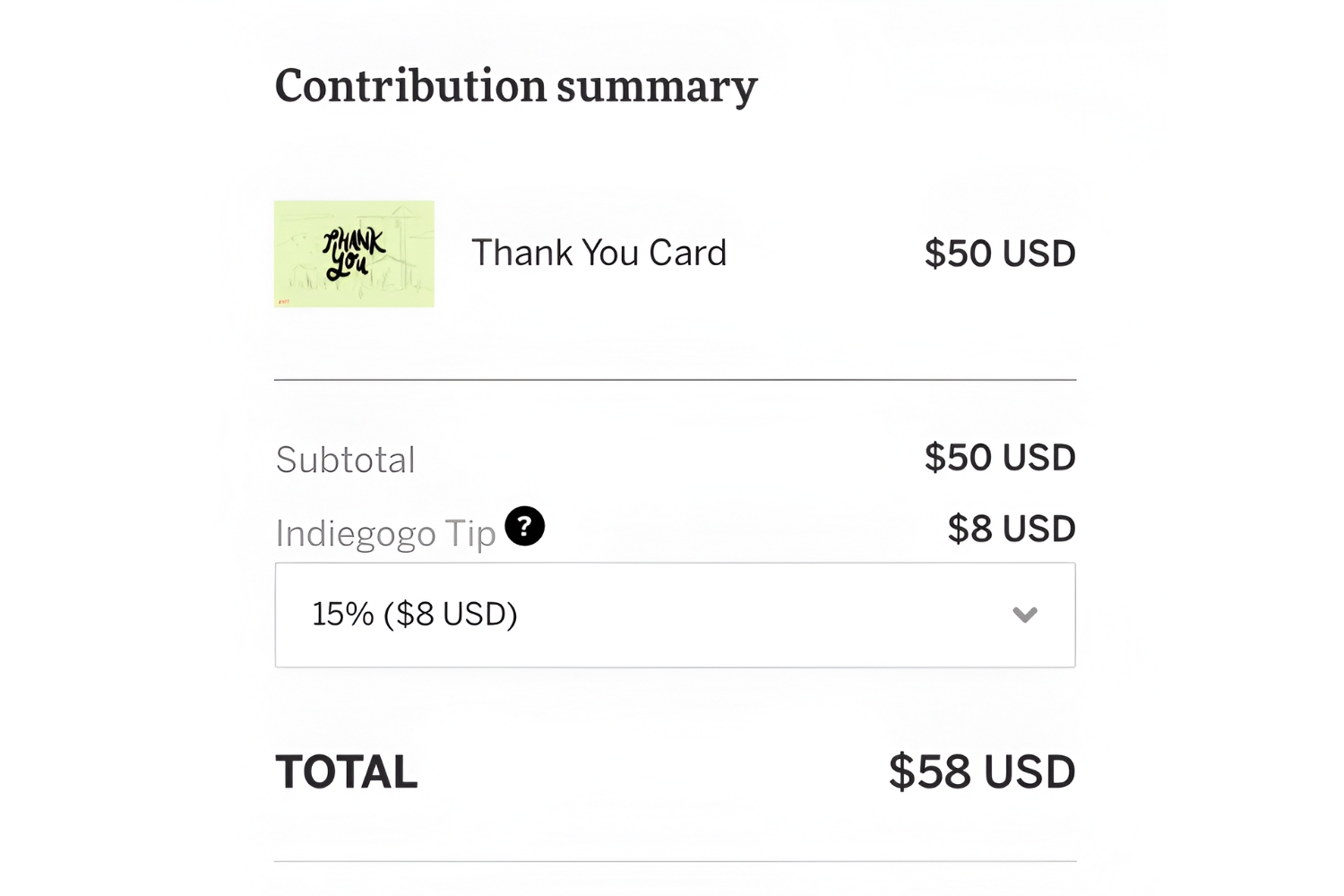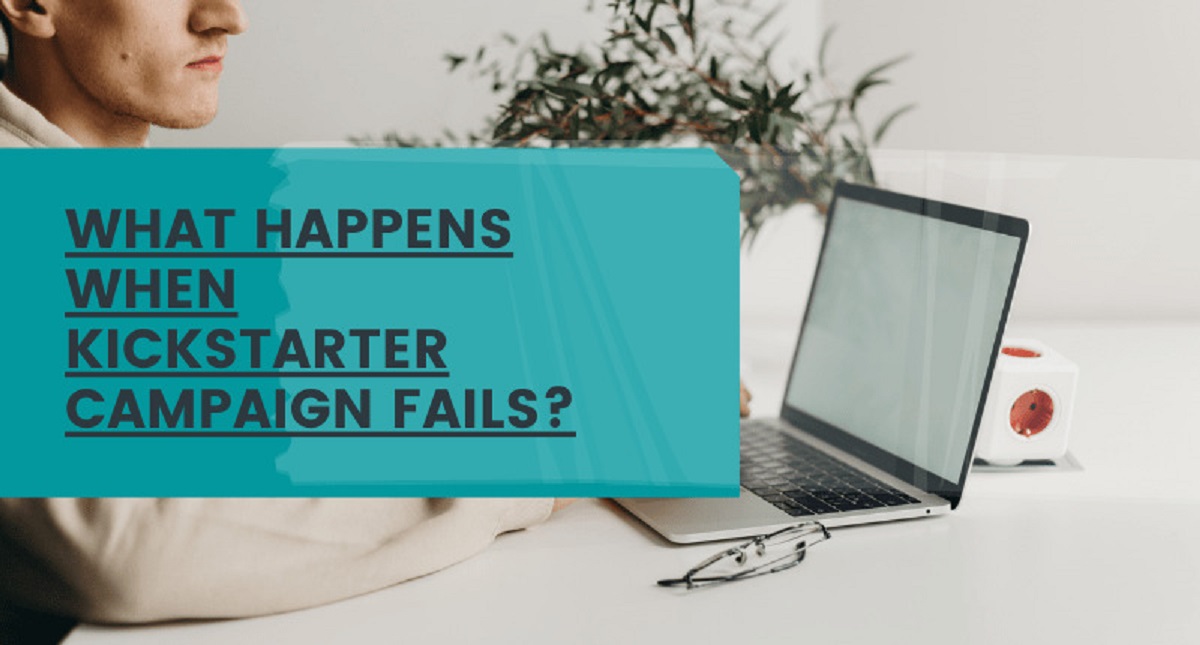Introduction
Crowdfunding has emerged as a popular alternative to traditional forms of fundraising, allowing individuals and organizations to gather financial support for their projects or endeavors from a large number of people, typically through online platforms. From innovative tech gadgets to creative art installations, crowdfunding has opened doors for countless ideas to come to life. However, not every crowdfunding campaign ends in success.
In this article, we will explore the potential outcomes when a crowdfunding project fails. We will delve into the financial consequences for backers who have invested in the project, the repercussions faced by project creators, the legal implications that may arise, the damage to one’s reputation, and the impact it can have on future crowdfunding endeavors.
Understanding the dynamics and potential pitfalls of a failed crowdfunding project is crucial for both backers and creators. While the internet is filled with success stories, it is equally important to shed light on the less positive outcomes that can occur in the crowdfunding world.
So, whether you are considering backing a crowdfunding campaign or planning to create one yourself, read on to discover what happens when a crowdfunding project doesn’t reach its funding goal or fails to deliver on its promises.
Understanding Crowdfunding
Crowdfunding is a method of raising funds by collecting small contributions from a large number of people, typically through online platforms. Unlike traditional fundraising methods where a few big investors or institutions provide funding, crowdfunding allows individuals or organizations to pitch their projects or ideas and attract support from a broad audience.
There are several types of crowdfunding models, including rewards-based, equity-based, donation-based, and debt-based. In rewards-based crowdfunding, backers contribute funds in exchange for non-financial incentives such as early access to a product, exclusive merchandise, or a personalized shout-out. Equity-based crowdfunding, on the other hand, involves backers investing in a project in return for equity or shares in the business.
Crowdfunding platforms have gained immense popularity in recent years, offering a space for artists, entrepreneurs, and innovators to showcase their ideas and seek financial support. These platforms provide the necessary infrastructure to connect campaigners with potential backers and facilitate the collection and management of funds.
One of the key aspects of crowdfunding is the “all or nothing” nature of many campaigns. This means that if a project does not reach its specified funding goal within a certain timeframe, the project does not receive any money, and backers’ contributions are typically returned. This mechanism ensures that creators can meet their funding requirements to carry out the project successfully, while backers have some degree of assurance that their funds will only be used if the project has adequate support.
Furthermore, crowdfunding extends beyond just raising funds; it also serves as a validation tool for ideas. It allows creators to gauge the demand and interest in their projects before committing significant resources. By collecting funds from backers, entrepreneurs and artists can not only validate their ideas but also generate a sense of community support and engagement.
Understanding the different crowdfunding models and the inherent risks associated with them is essential for both creators and backers. It is crucial to thoroughly research and evaluate a campaign before making any contributions to ensure that you align with the project’s goals and have confidence in its potential for success.
Common Reasons for Crowdfunding Project Failure
While crowdfunding can be a powerful tool for bringing ideas to life, not all projects achieve the desired outcome. There are several common reasons why crowdfunding campaigns fail to meet their funding goals or deliver on their promises. Understanding these reasons can help both backers and creators navigate the challenges and increase the chances of success.
1. Lack of Preparation: One of the primary reasons for crowdfunding project failure is a lack of preparation. Many creators underestimate the time, effort, and resources required to run a successful campaign. Insufficient planning, poor presentation, and inadequate outreach can all contribute to a lack of interest from potential backers.
2. Unrealistic Funding Goals: Setting unrealistic funding goals can doom a crowdfunding campaign from the start. If the target amount is too high or does not align with the project’s scope and budget, it becomes challenging to attract enough backers to reach the goal. It is crucial for creators to carefully assess their financial needs and set realistic funding targets.
3. Inadequate Marketing and Promotion: Even the most innovative and compelling projects can fail if they are not properly marketed and promoted. Without effective outreach and visibility, campaigns may struggle to gain traction and attract the attention of potential backers. A comprehensive marketing strategy, including social media promotion, email campaigns, and media outreach, is essential for generating interest and driving contributions.
4. Lack of Trust and Credibility: Building trust and credibility is critical in crowdfunding. Backers need to have confidence in the project creator’s ability to deliver on their promises. A lack of previous experience, incomplete project details, or a failure to communicate transparently can erode trust and discourage potential backers from supporting the campaign.
5. Insufficient Backer Engagement: Engaging with backers is key to maintaining interest and momentum throughout the campaign. Ignoring questions, providing inadequate updates, or failing to deliver timely responses can lead to disillusionment among backers. Keeping backers informed, involving them in the project’s progress, and showing appreciation for their support are crucial aspects of successful crowdfunding campaigns.
6. Competitive Market: Crowdfunding platforms are filled with a multitude of projects competing for the attention of backers. In a crowded marketplace, standing out and capturing the interest of potential supporters becomes increasingly challenging. Researching and understanding the competitive landscape can help creators position their projects effectively and differentiate themselves from similar campaigns.
The reasons mentioned above are just a few factors that contribute to crowdfunding project failure. Each campaign is unique, and there may be additional challenges specific to the nature of the project or the target audience. By being aware of these common pitfalls, creators can take proactive measures to mitigate risks and increase the chances of a successful crowdfunding campaign.
Financial Consequences for Backers
When a crowdfunding project fails, backers who have contributed funds may face various financial consequences. These consequences depend on the type of crowdfunding model and the specific circumstances surrounding the project’s failure.
In rewards-based crowdfunding, where backers receive non-financial incentives in exchange for their contributions, the financial impact of a failed project may be limited. While backers may be disappointed that they won’t receive the promised rewards, they typically do not suffer direct financial losses.
However, in equity-based crowdfunding or investment-based campaigns, backers may face more significant financial risks. If a project fails to meet its funding goal or does not deliver on its promises, backers may lose their invested capital. Since equity-based crowdfunding involves investing in the project or business, there is a real possibility of financial loss if the project does not succeed.
In some cases, backers may have the option to take legal action to recover their funds or seek compensation for financial damages. However, the success of such legal action depends on various factors, including the jurisdiction, the platform’s terms and conditions, and the project creator’s financial situation.
Backers should be aware that crowdfunding campaigns do carry inherent risks, and there is no guarantee of a return on investment. Before pledging funds, it is essential to conduct thorough due diligence on the project and evaluate the risk factors involved. Understanding the financial implications and accepting the potential loss of invested funds is an important aspect of participating in crowdfunding.
To minimize the financial risks associated with crowdfunding, backers can consider the following steps:
- Research the project and the project creator: Evaluate the track record and credibility of the project creator. Look for any previous successful or failed campaigns they have been involved in.
- Assess the financial viability: Analyze the project’s financial projections and budget. Ensure that the funding goals are realistic and that the project has a sound plan for utilizing the funds effectively.
- Diversify investments: Avoid putting all your crowdfunding investments into a single project. Diversify your portfolio by supporting multiple campaigns to spread the risk.
- Stay informed and engaged: Keep track of project updates and communicate with the project creator and fellow backers. Active engagement can provide insights into the project’s progress and potential challenges.
- Consider crowdfunding platforms with investor protection measures: Some crowdfunding platforms offer investor protection mechanisms, such as escrow services or refund guarantees. Look for platforms that prioritize the financial security of backers.
By taking these precautions, backers can minimize the financial consequences of a failed crowdfunding project and make more informed decisions when supporting campaigns.
Repercussions for Project Creators
When a crowdfunding project fails, project creators may face significant repercussions that go beyond just financial implications. These repercussions can have long-lasting effects on their credibility, relationships, and future endeavors.
1. Loss of Trust and Credibility: A failed crowdfunding project can damage the trust and credibility of the project creator. Backers who believed in the project and supported it financially may feel betrayed or disappointed when the project fails to meet expectations. This loss of trust can make it challenging for project creators to garner support for future projects or initiatives.
2. Damage to Reputation: The failure of a crowdfunding project can lead to a negative reputation for the project creator. Negative reviews, social media backlash, and public criticism can harm their professional image. In the age of social media, news of a failed project can spread quickly, potentially impacting the project creator’s personal and professional relationships.
3. Legal Obligations: Depending on the circumstances, project creators may have legal obligations to fulfill even if their crowdfunding project fails. For example, if backers were promised rewards or perks in exchange for their contributions, project creators may be legally obligated to fulfill those promises or provide refunds. Failing to meet these obligations can result in legal disputes and damage the project creator’s reputation further.
4. Financial Burden: In addition to the disappointment of a failed project, project creators may face a financial burden. They may have already invested personal funds, time, and resources into the project, which cannot be recouped. In some cases, project creators may have taken loans or incurred significant expenses to bring their idea to life, expecting crowdfunding to bridge the financial gap. The failure of the campaign can leave them in a difficult financial situation.
5. Emotional Impact: The failure of a passion project can have a significant emotional impact on project creators. They may feel a sense of failure, disappointment, and loss. It can be challenging to bounce back from such setbacks, and project creators may need time to recover and regain confidence before embarking on new endeavors.
6. Hindered Future Crowdfunding Efforts: A failed crowdfunding project can make it more challenging for project creators to launch future campaigns. Potential backers may be hesitant to support a creator who has experienced failure in the past. It may also become more challenging to convince backers of the viability and potential success of new projects
While a failed crowdfunding project can be disheartening, project creators can take steps to navigate these repercussions:
- Communicate Transparently: Project creators should communicate openly and honestly with backers about the reasons for the project’s failure and any plans for refunding or resolving outstanding obligations.
- Learn from Mistakes: Analyze the reasons behind the project’s failure and learn from the experience. Identifying areas for improvement can help project creators make better decisions and avoid similar pitfalls in future endeavors.
- Rebuild Trust: Take proactive steps to rebuild trust and credibility with backers and the wider audience. This can involve demonstrating a commitment to transparency, delivering on promises, and showcasing successful subsequent projects or initiatives.
- Seek Support: Lean on friends, family, and mentors for emotional support during the aftermath of a failed project. Their guidance and encouragement can help project creators regain confidence and move forward.
While the repercussions of a failed crowdfunding project can be challenging, they should not deter project creators from pursuing their passions. With resilience, reflection, and a proactive approach, project creators can recover from setbacks and continue on their entrepreneurial journey.
Legal Implications
When a crowdfunding project fails, there can be various legal implications for both project creators and backers. These legal considerations can arise from contractual obligations, consumer protection laws, intellectual property issues, and potential disputes or liabilities.
1. Contractual Obligations: Project creators who offer rewards or perks in exchange for backers’ contributions may have legally binding contractual obligations. If the project fails to deliver on these promises, project creators may face legal action and potential liability for breach of contract. It is crucial for project creators to carefully outline the terms and conditions of the campaign and ensure that they have the means to fulfill their obligations.
2. Consumer Protection Laws: Backers who contribute funds in a crowdfunding campaign are considered consumers and may be protected under consumer protection laws. These laws vary by jurisdiction but generally aim to protect consumers from deceptive advertising, fraudulent activities, and unfair business practices. If project creators engage in any misleading or deceptive practices, they may be held liable and face legal consequences.
3. Intellectual Property Issues: Crowdfunding projects often involve the development of new products or ideas. Project creators must carefully navigate intellectual property issues to avoid infringing on existing patents, trademarks, or copyrights. Failing to secure the necessary intellectual property rights or unintentionally infringing on the rights of others can result in legal disputes and financial liabilities.
4. Tax Obligations: Project creators may have tax obligations related to the funds raised through crowdfunding. The taxation of crowdfunding proceeds can vary depending on the jurisdiction and circumstances, including whether the funds are considered income, investment, or donations. It is essential for project creators to consult with tax professionals to ensure compliance with applicable tax laws.
5. Disputes and Liability: In some cases, disputes may arise between project creators and backers, especially if there are disagreements regarding the use of funds, failure to deliver rewards, or allegations of fraud. These disputes can lead to legal proceedings and potential financial liabilities. It is advisable for both parties to seek legal advice when disputes cannot be resolved through communication and negotiation.
Project creators can take several steps to mitigate legal risks and ensure compliance:
- Consult with Legal Professionals: Seek advice from legal professionals experienced in crowdfunding and relevant areas of law to navigate potential legal implications and ensure compliance.
- Transparent Communication: Maintain open and transparent communication with backers, providing regular updates and addressing any concerns or issues that may arise during and after the campaign.
- Disclosure and Transparency: Clearly disclose all relevant information, including risks and limitations, related to the project. This includes disclosing any potential challenges or obstacles that may affect the project’s success or delivery.
- Review Platform Terms and Conditions: Review and understand the terms and conditions of the crowdfunding platform being used. This can help project creators understand their rights and responsibilities and ensure compliance with the platform’s policies.
- Protect Intellectual Property: Take appropriate measures to protect intellectual property rights by obtaining patents, trademarks, or copyrights, if applicable. Conduct thorough research to avoid infringing on the intellectual property rights of others.
Being aware of the potential legal implications and taking proactive measures can help project creators navigate the legal landscape associated with crowdfunding. By prioritizing transparency, complying with applicable laws, and seeking professional guidance, project creators can minimize legal risks and promote a trustworthy and legally compliant crowdfunding campaign.
Reputation Damage
When a crowdfunding project fails, one of the significant repercussions for project creators is the potential damage to their reputation. A failed campaign can lead to negative perceptions and public scrutiny, affecting the project creator’s personal and professional standing.
1. Backer Dissatisfaction: Backers who supported a project that fails to meet its funding goals or deliver on promises may become dissatisfied and express their disappointment publicly. Negative reviews, social media posts, and online discussions can tarnish the project creator’s reputation and make it challenging to regain trust in future endeavors.
2. Loss of Credibility: A failed crowdfunding campaign can erode the perceived credibility of the project creator. Backers, potential partners, and investors may question the project creator’s ability to execute future projects or deliver on promises. This loss of credibility can hinder future collaborations, partnerships, or funding opportunities.
3. Negative Publicity: Failure in the crowdfunding realm can attract media attention, especially if the project had significant hype or if there were specific problems or controversies surrounding it. Negative publicity can create lasting damage to the project creator’s reputation and make it more difficult to rebuild trust or attract support for future ventures.
4. Trust Deficit Across Platforms: The reputation damage from a failed crowdfunding project can extend beyond the specific platform used. Backers and supporters may share their negative experiences across different crowdfunding platforms, social media channels, and online communities. This can create a trust deficit that the project creator will need to overcome when seeking future support.
5. Professional Opportunities: A damaged reputation can affect not only future crowdfunding efforts but also other professional opportunities. Job prospects, partnership opportunities, and industry recognition may be impacted if the project creator’s reputation is tarnished due to a failed crowdfunding project.
To mitigate reputation damage and rebuild trust, project creators can consider the following strategies:
- Transparent Communication: Maintaining open and transparent communication with backers and the wider public is crucial. Addressing concerns, acknowledging mistakes, and providing explanations can help project creators regain trust and demonstrate a commitment to transparency.
- Learn and Improve: Reflect on the reasons for the project’s failure and use the experience as a learning opportunity. Identifying areas for improvement and implementing changes in subsequent projects can help project creators rebuild their reputation.
- Showcase Successes: Highlighting successful projects or initiatives following a failed crowdfunding campaign can help project creators demonstrate their ability to learn, adapt, and deliver on promises. Sharing success stories can restore confidence and showcase a track record of accomplishment.
- Engage with Backers and Supporters: Actively engage with backers and supporters, even after a campaign has ended. Show appreciation for their initial support, keep them updated on progress, and address any concerns or questions promptly and honestly.
- Seek Endorsement and Partnerships: Building strategic partnerships and seeking endorsements from respected individuals or organizations in the industry can help project creators regain credibility and rebuild their reputation. Positive endorsements can reassure backers and potential supporters of the project creator’s capabilities.
Over time, with consistent effort, delivery on promises, and a focus on rebuilding trust, project creators can overcome reputation damage caused by a failed crowdfunding project. By demonstrating growth and a commitment to rectifying past mistakes, project creators can earn back the trust and support of backers and the wider community.
Impact on Future Projects
A failed crowdfunding project can have a significant impact on the success and perception of future projects undertaken by the same project creator. The repercussions of a failed campaign can affect not only the project creator’s confidence but also their ability to attract support, funding, and engagement for future endeavors.
1. Backer Aversion: After experiencing a failed crowdfunding project, backers may become more hesitant to support future projects from the same creator. The disappointment and potential financial loss from a failed campaign can lead to a diminished willingness to take risks and invest in future initiatives. This aversion can present a significant challenge for project creators seeking to secure funding and support for new ventures.
2. Credibility Challenges: The failure of a previous crowdfunding project can raise questions about the project creator’s credibility and ability to deliver on promises. Backers and potential supporters may question the project creator’s track record, project management skills, and overall competence. Overcoming these credibility challenges can be an uphill battle in subsequent projects.
3. Limited Funding Opportunities: The failure of a crowdfunding campaign can impact project creators’ access to traditional funding sources. Potential investors and lenders may view a failed crowdfunding project as an indicator of a higher risk profile. This can make it more challenging for project creators to secure loans, venture capital, or other sources of funding for future projects.
4. Diminished Support Network: A failed crowdfunding campaign may result in a loss of support from the project creator’s network of friends, family, and colleagues. Disappointment or tension among personal relationships can strain future collaborative opportunities or hinder the formation of productive partnerships necessary for successful projects.
5. Perception of Project Viability: The failure of a crowdfunding project can lead to doubts and skepticism about the viability of future ideas and initiatives. Backers and the wider audience may question the potential success of future projects, leading to decreased interest and support. Project creators may need to work harder to prove the profitability, feasibility, and overall value of their new projects.
To mitigate the impact on future projects, project creators can adopt the following strategies:
- Evaluate and Learn: Conduct an objective analysis of the failed crowdfunding project and identify areas for improvement. Learn from past mistakes, reassess strategies, and use these lessons to strengthen future projects.
- Transparent Communication: Engage with the backers and community to discuss the reasons for the previous project’s failure and the steps taken to avoid similar pitfalls in future endeavors. Demonstrating transparency and a commitment to learning can help rebuild trust.
- Build a Track Record: Focus on executing smaller-scale projects successfully to rebuild a track record of accomplishments. Proving the ability to deliver on promises and demonstrating a improved project management skills can help restore confidence among backers and investors.
- Engage Existing Supporters: Leverage existing relationships with supporters, backers, and partners who have not been deterred by the failed project. Engage them early on in future projects to build a core network of support and advocacy.
- Explore Alternative Funding Sources: Diversify funding strategies by exploring alternative sources such as grants, angel investors, or strategic partnerships. Expanding the funding options can mitigate the impact of the failed crowdfunding project.
Though a failed crowdfunding project can present obstacles, it does not guarantee failure for future projects. By implementing lessons learned and taking proactive measures to rebuild trust, project creators can mitigate the impact and position themselves for success in future endeavors.
Steps to Take When a Crowdfunding Project Fails
Experiencing a failed crowdfunding project can be disheartening, but it is essential for project creators to take proactive steps to mitigate the impact and learn from the experience. Here are some key steps to consider when a crowdfunding project fails:
1. Reflect and Evaluate: Take the time to reflect on the reasons behind the failure of the crowdfunding campaign. Evaluate the project’s weaknesses, potential shortcomings, and any mistakes made during the campaign. Identify areas for improvement and valuable lessons that can be applied to future projects.
2. Communicate with Backers: Address backers openly and transparently about the failure of the project. Explain the reasons for the failure, take responsibility for any shortcomings, and express gratitude for their support. Providing clear and honest communication can help maintain trust and potentially salvage relationships.
3. Fulfill Obligations: If the project had promised rewards or perks to backers, make every effort to fulfill those obligations, even if the crowdfunding project did not reach its funding goal. Honoring commitments demonstrates integrity and can help maintain positive relationships with backers.
4. Seek Feedback: Request feedback from backers and the wider community to gain insights into their perspectives and expectations. This feedback can be invaluable in refining future project ideas and strategies. Consider sending out surveys or engaging in direct conversations to gather feedback.
5. Learn from the Experience: Analyze the project’s strengths and weaknesses, as well as the campaign’s execution. Understand what worked and what didn’t, and use this knowledge to adjust future project plans and improve marketing and communication strategies. Learning from the experience can increase the chances of success in future crowdfunding endeavors.
6. Rebuild Trust: Rebuilding trust is vital after a failed crowdfunding project. Engage with backers and the wider community, demonstrating commitment and transparency. Share progress updates, lessons learned, and future plans to demonstrate growth and a proactive approach.
7. Evaluate the Project’s Viability: Assess whether the project can still be pursued despite the crowdfunding campaign’s failure. Consider alternative funding options, reassess the project’s scope, and determine its potential for success. It may be necessary to make adjustments or seek additional resources before relaunching the project.
8. Consider Relaunching or Refocusing: Evaluate the feasibility of relaunching the project with improved strategies and revised goals. Alternatively, consider repurposing parts of the project or pivoting to a new concept that incorporates lessons learned from the failed campaign. Adaptation and flexibility are key in navigating the crowdfunding landscape.
9. Seek Support: Reach out to friends, mentors, or fellow entrepreneurs who can provide guidance, encouragement, and support during this challenging time. Their insights and experiences can be invaluable in helping project creators navigate setbacks and regain momentum.
10. Learn and Move Forward: Embrace the experience as a learning opportunity and use it to grow both personally and professionally. Approach future projects with resilience, an open mind, and a desire to apply lessons learned to increase the chances of success.
Remember, a failed crowdfunding project does not define your capabilities or potential for success. By taking these steps and maintaining a positive mindset, project creators can use the experience to fuel future achievements and shape their journey towards reaching their goals.
Conclusion
Crowdfunding projects can be unpredictable, with both success stories and failures. Understanding the potential outcomes when a crowdfunding project fails is essential for both backers and project creators. While a failed crowdfunding project can have financial consequences and impact reputation, it should not discourage individuals from pursuing their passions and ideas.
For backers, it is important to conduct thorough research and due diligence before contributing to a crowdfunding campaign. By evaluating the project, the project creator’s track record, and the potential risks involved, backers can make informed decisions and mitigate some of the financial risks associated with a failed crowdfunding project.
For project creators, experiencing a failed crowdfunding project can be a valuable learning experience. It is crucial to reflect on the reasons for the failure, communicate transparently with backers and the wider community, and take proactive steps to rebuild trust and credibility.
While reputation damage and financial repercussions may arise from a failed crowdfunding project, it is essential to see it as a stepping stone towards growth and improvement. By learning from mistakes, adapting strategies, and seeking feedback, project creators can increase their chance of success in future crowdfunding endeavors.
In the ever-evolving landscape of crowdfunding, setbacks should not deter individuals from pursuing their dreams. With resilience, perseverance, and a commitment to continuous improvement, both backers and project creators can navigate the challenges and embrace the potential of crowdfunding to bring innovative ideas to life.

























